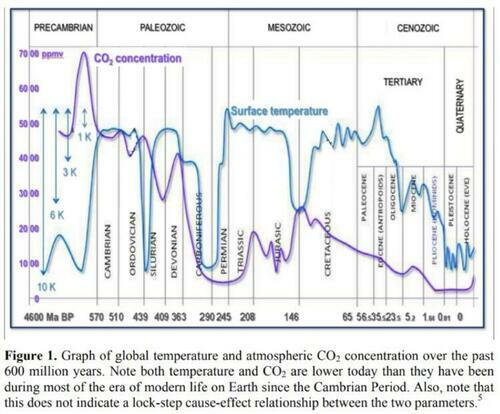U.S. natural gas producers anticipate higher demand and prices driven by growing LNG exports and the rapid expansion of data centers.'
While natural gas producers plan to increase output to meet rising demand, they aim to avoid overproduction.
Drillers are learning lessons from a history of unrestrained drilling in shale plays like the Permian and Haynesville.
U.S. natural gas producers are preparing for stronger demand and higher prices for their product as data center proliferation accelerates further and years of depressed gas prices become a thing of the past. They are not letting it all happen by itself either—gas executives are in talks with data center developers to build them where the gas is.
“Expectation of a step change in power demand has created opportunities for increasing dialogue around the potential for power generation and data projects within the Permian Basin,” the co-chief executive of Permian Resources said recently, as quoted by Reuters.
Also recently, Black & Veatch, the EPC and construction major, wrote that natural gas was just about the optimal power option for data centers, which made it quite appealing for data center developers.
“Enterprises eager to make an environmental impact through greener strategies and energy innovation that lessen their carbon footprints get reliable, accessible and cleaner power from natural gas,” Black & Veatch wrote. “Natural gas supply and delivery are extremely reliable, given that pipelines typically are below ground and protected from nature’s elements. Natural gas also is cheaper than diesel, and widely available generators now can meet the industry standard of a 10-second startup time for emergency power.”
In anticipation of more demand, gas producers are already preparing to boost production—after they just cut it for the first time in four years this year. The Energy Information Administration said in its latest Short-Term Energy Report that it expected natural gas production in 2025 to inch up to 114 billion cu ft daily from 113 billion cu ft daily this year, or 1%, led by a 6% increase in output in the Permian. This happens to be where gas executives are trying to convince data center developers to build their new facilities.
“Rather than continuing to get low margins on our gas... we're trying to figure out a way to be creative on ways to turn some of that natural gas into more value for our shareholders,” the chief executive of Diamondback Energy said, as quoted by Reuters last week.
There is more, however. Grid supply is not unlimited, even in Texas and New Mexico with their abundant natural gas supply, which means that a new mechanism of power supply may be applied for the needs of data center operators, again per the above Reuters report. It cited analysts as saying data centers, power utilities, and gas producers could negotiate some sort of a three-way agreement to secure the supply necessary for data centers’ needs.
What all this means is what many analysts have been forecasting: the AI race will be powered by natural gas, and not wind and solar. The reason is simple enough: natural gas supply is more reliable than the supply of weather-dependent energy sources. Interestingly, the EIA does not seem to care about AI electricity needs. In its latest STEO, it said it expected power generation next year to increase by 3%, “mostly to supply increased air-conditioning demand compared with last year, driven by hotter summer temperatures this year.”
There is always a chance that next summer will be less hot than this summer was, but with data centers, the trajectory of demand will continue higher—just like LNG export demand. “The combination of growing LNG exports, increased electrical generation demand, and the prospect of winter weather suggests a tighter supply-demand picture for natural gas in 2025 and beyond,” the chief executive of Coterra Energy said at the company’s third-quarter analyst call, as quoted by Reuters. And that picture suggests higher prices and higher output—but not too high.
Oil drillers found out the hard way why drilling at will was not wise and took a more disciplined approach to production. Natural gas drillers have also had to learn this lesson the hard way, even if it wasn’t them who drove the surplus supply situation but those shale oil drillers with their associated gas in the Permian. In any case, when the industry sees a stronger case for supply growth, it will not unleash all available supply. It will likely pace itself.
Enverus recently estimated the remaining reserve situation for one of the biggest gas-producing shale regions, Haynesville, and found that it depends on the demand. “We estimate the Haynesville has 12.5 years of sub-$3.00/Mcf inventory at last year’s turn-in-line (TIL) cadence,” Enverus analyst Jimmy McNamara said. “This drops to 10.5 years when modeling EIR’s 2026 TIL cadence that increases Haynesville supply by 2.0 Bcf/d to match incoming LNG demand.”
Some companies have better inventory than others and would be able to produce cheap gas for longer, but all in all, the price rise seems inevitable when factoring in both the rise in LNG demand, especially in Europe, and the demand surge expected from the tech industry for its data centers. And so does the production increase, cementing the position of natural gas as the optimal power generation fuel.
Data centers are turning into an unexpected obstacle that may well compromise the whole transition offensive against hydrocarbons.
Wind and solar could supply power to data centers for certain periods of a day, week, or month, but the bulk of the round-the-clock supply must come from baseload generation facilities.
The part about the affordability of the energy system likely has to do with emissions rather than money.
Until about a year ago, no one paid much attention to data centers. Everyone used them, of course, but they didn’t think about them. Then, the AI rush began. It was followed by a rush for energy supply. One year in, and data centers are threatening the very energy transition on which so many governments have staked everything.
Power utilities, regulators, and climate activists appear to be experiencing growing concern about the immediate outlook for oil and gas demand, Reuters reported this week, saying the fast growth in demand for electricity caused by the mushrooming of data centers had come as a surprise to many. There may have been some frustration, too, because wind and solar have been unable to scale up fast enough to cover this additional demand, per some of the people Reuters spoke to—even though there is no scale that would have covered that demand, not for intermittents.
The worry is real, for sure. The Washington Post also published a worry-laden article this week about the increase in electricity demand due to data center proliferation and the risk this is posing to “decades of progress cutting greenhouse gas emissions, as utilities lay plans for scores of new gas power plants to meet soaring electricity demand.”
Data centers are turning into an unexpected obstacle that may well compromise the whole transition offensive against hydrocarbons. Data centers need reliable, uninterrupted electricity around the clock, and there is no way either wind or solar, even with battery backup, can guarantee this to the extent that data centers need. No wonder their operators are turning to gas and coal generators. They’re even planning to build new nuclear and revive old nuclear. The race for electricity supply is on.
Natural gas generators and natural gas producers are only too happy to oblige, of course. After years of depressed prices, natural gas drillers are due some respite. They see it in the surge in electricity demand driven by data centers and their new and much greater needs originating with AI development. Data centers have become more power hungry. Gas is the most easily available source of that power.
Last month, S&P Global estimated that growth in data centers could add between 3 billion cu ft and 6 billion cu ft in new daily gas demand to the U.S. total by 2030. “We believe that combination of data center demand and ongoing security concerns will underpin hydrocarbon revenues, and particularly natural gas demand, for at least the next decade,” S&P analysts said.
Indeed, the ratings agency expects electricity demand from data centers to grow at an annual rate of 12% over the next six years, which is certainly a healthy pace from natural gas producers’ perspective. And there is no realistic way this demand can be reliably met by wind and solar, the pillars of the energy transition. Yet this does not mean that pressure on data center operators to green-up is not growing.
“I think everyone agrees that we need more and more renewable energy to keep up with a growing demand,” Meta spokesman Jim Cullinan said recently, as quoted by Reuters. “I think it is up to the utilities to comment on how they will fill the supply.”
Passing the ball to the power utilities, however, is not going to change the situation. That situation is that wind and solar could supply power to data centers for certain periods of a day, week, or month, but the bulk of the round-the-clock supply must come from baseload generation facilities, emissions and all. With that, the data center situation gives us a taste of what the energy transition would actually look like—because the central idea of the transition is total electrification.
“Data centers are just a warm-up act compared to the amount of electrification we’re going to have going forward,” the chief executive of transition advocacy outlet RMI told Reuters. “And if our first instinct is to start building gas plants and nuclear plants in order to do that, we're just going to create an energy system we cannot afford.”
The part about the affordability of the energy system likely has to do with emissions rather than money, but the first part about data centers being a warm-up is spot-on. The surge in electricity demand from these facilities is an excellent illustration of the insurmountable obstacles to the success of the energy transition as envisioned by its net-zero champions. It also exposes the shortcomings of wind and solar, and dispels the myth that they can replace, instead of complement, gas and coal generation.
Whatever Big Tech corporate spokespeople say, the fact is that their industry needs a reliable electricity supply, and the poster tech of the transition falls short on that very condition. One can either have green or reliable power supply. The sooner this gets acknowledged by the transition leaders, the better for everyone—including the planet.
By Irina Slav for Oilprice.com








